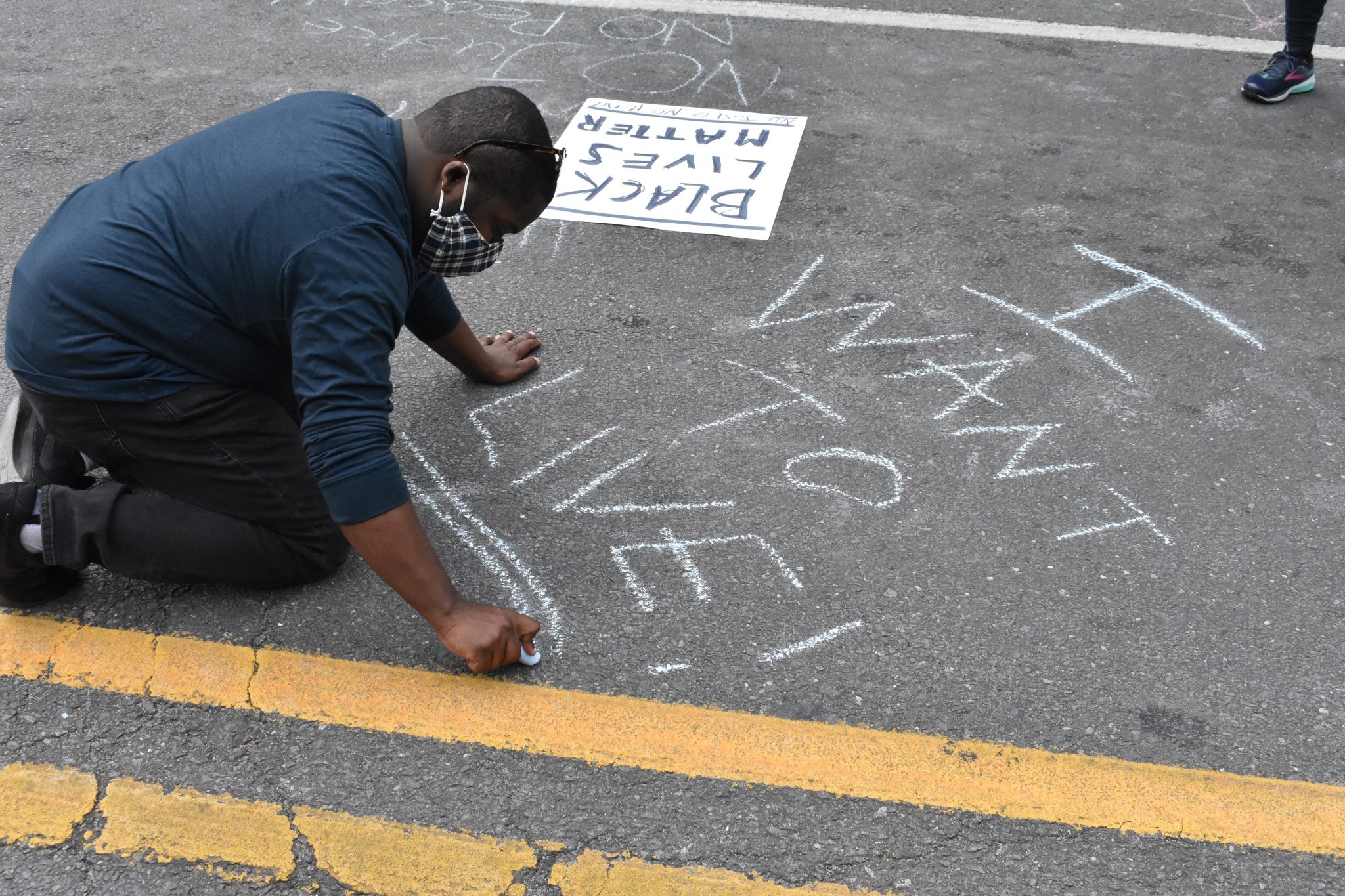Nationwide protests against police brutality over the death of George Floyd have gripped cities and towns across America.
Princeton would be the latest to host a demonstration when community organizers held a “Kneel for Justice” rally on June 2. Hundreds gathered around the FitzRandolph Gate, the official entrance of Princeton University, to honor the life of Floyd and show support for black lives.
Spanning portions of Nassau and Witherspoon streets, protestors of every age and race would also honor the lives of emergency medical technician Breonna Taylor, who was killed in her home in Louisville, Kentucky, and Ahmaud Arbery, who had been killed on a jog in Georgia, in recent months.
“We have to give people the opportunity to get involved to turn this movement into action. There is a favorite quote from one of my mentors: ‘The more sweat in times of peace, the less blood in times of war,’ ” said Rev. Lukata Mjumbe of Witherspoon Street Presbyterian Church. “We have to be sweating right now, we have to be working right now, if we want to create the type of reality that we say we are looking for.”
He added that he does not worry about enthusiasm dwindling over time in regard to reforms.
“I think regardless of what it is that others will try to do, black and brown people are going to be free. Justice will roll down like waters of a righteous ever-flowing stream,” he said. “So I do not worry about that. I just do the work because I want to be contributing to it and not working against it.”
Nassau Street was blocked off at Vandeventer Avenue and Washington Road by a Princeton municipal garbage truck. The crowd stretched between South Tulane Street and Palmer Square and extended from the intersection of Nassau and Witherspoon down to Spring Street.
The peaceful protest began with attendees kneeling for 8 minutes and 46 seconds, which was the reported time that had elapsed when Floyd died on the ground in Minneapolis police custody.
As protestors knelt in silence, one woman overcome with emotion cried as she stated that she could painfully see Floyd’s face and apologized to others surrounding her when she could no longer hold it in.
“This is not even a nationwide issue, it has reached places like the United Kingdom. It shows that people are fed up and tired. It is 2020 and why are we still having police killing black men and why are they not getting persecuted for it?” said Imani Mulrain, a Princeton University student. “Our justice system is still failing us in the 21st century.”
She added that people need to change not what is said but how they act.
“We cannot just tweet and post things that say Black Lives Matter. We have to actually change our system and change the way policing works and where money is allocated,” Mulrain said. “This is not just a problem for black people or police, it is a national social problem. Change will never happen unless everyone actively changes how they act.”
The crowed of people from the Princeton area would chant “No Justice No Peace” and “Black Lives Matter” throughout the demonstration. The protest had attendees clapping in support as speeches were projected from FitzRandolph Gate.
Speakers during the rally included Associate Professor of African American Studies at Princeton University Ruha Benjamin, poet Tracy K. Smith, Mulrain, Mjumbe and Princeton High School graduate Sumaiyya Stephens.
“I felt it was critical to be a participant in the protest against the extraordinary explosion of racism we have seen over the last several years. I hope people not only here in Princeton but everywhere are activated and mobilized to bring their voices, dollars and their votes to things that matter most such as human rights and decency,” said Gia Rosenblum, an attendee of the protest. “It is critical that people of every generation are activated and mobilized.”
She added that everybody from every economic socio-economic background has to also be mobilized and activated.
Chalk comments were spread out on the sidewalks and pavement with messages of “End racism” and “All lives can’t matter until black lives matter.”
“It is really about the action after this that is really important. We protest and say these words all we want but if we don’t actually put action into what we are saying it will not make a difference,” Mulrain said.
When the demonstration crowd started dissipating after 6:30 p.m., individuals still walked around town and a small group sat down in the middle of an intersection on Nassau.
Some protestors on Nassau also continued to grab chalk to write messages on the street as one African American protestor finished writing “I want to live!”

